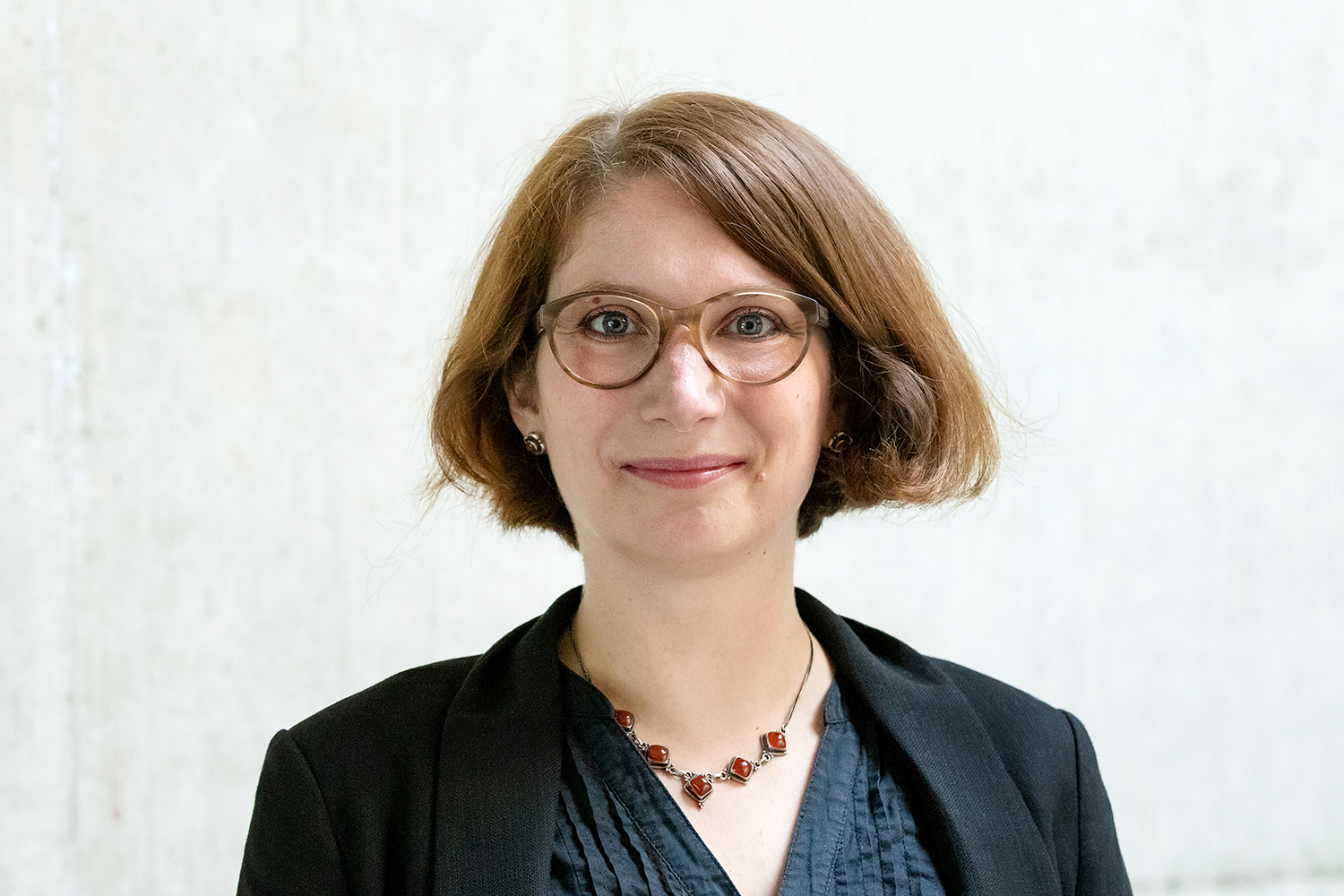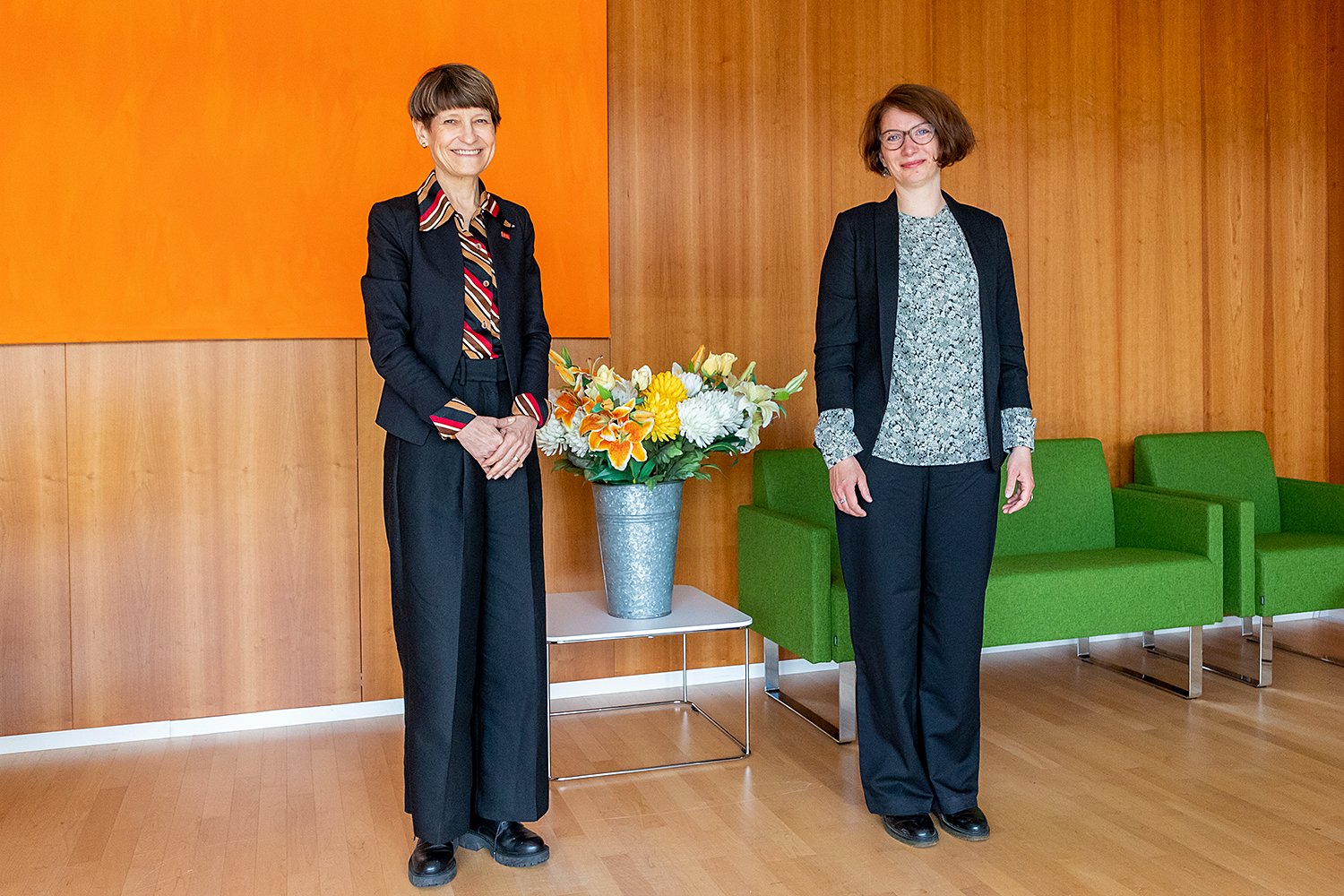Making teaching better Svenja Vieluf is the new Professor of School Pedagogy at the Institute for Educational Sciences
What does quality of teaching actually mean? How can it be studied? What influence does heterogeneity have on teaching? And how do schools change as a result of refugee migration? Svenja Vieluf addresses these questions in her research. On April 1, 2022, she became the new professor for school pedagogy with a focus on teaching research at the Institute of Educational Science.

Svenja Vieluf is the new Professor of School Pedagogy with a focus on teaching research. Photo credit: Kristina Rottig/TU Braunschweig
Did you arrive well at TU Braunschweig?
Thank you, I did. Arriving somewhere new is always an adventure … At the moment I am still struggling through the minor challenges of everyday life, but a solution is always found quickly and I feel very kindly received and well supported by the staff.
Why did you choose TU Braunschweig?
I was convinced by the good facilities and infrastructure for research and teaching, the family atmosphere of the TU, but also the family-friendliness of the university. I see many points of contact here for joint projects with colleagues – both at the Institute for Educational Sciences and interdisciplinary – and I am looking forward to a stimulating working environment.
One of your main research areas is teaching quality? What exactly do you focus on?
I am currently working intensively on the theoretical question of what “teaching quality” means and how it can be investigated, considering that teaching is a complex social interaction and that teachers cannot simply “drill” knowledge into students, but rather open up learning opportunities for them. I also try to take into account that all students are different in many ways and therefore optimally supporting everyone in the exact same way in the classroom is not possible.
These are not new ideas, but they have not been sufficiently taken into account in quantitative-empirical research so far – because that is actually not easy either. This is where I would like to find creative solutions. And I would like to understand even better how certain patterns of interaction in the classroom – especially ways of dealing with differences between pupils – become routines, what role emotions play in this, and how these routines can be changed.
Another focus of yours deals with heterogeneity in teaching and school. What challenges and opportunities do you see here and how should teachers deal with the topic?
I see the central challenge for teachers in the contradictory expectations that are placed on them in terms of “dealing with heterogeneity”. On the one hand, teachers are supposed to support all pupils individually, on the other hand, they are supposed to pick them out. They should take into account individual characteristics and needs, but treat everyone equally. They should provide individualised learning opportunities for each child, but create social inclusion. The contradictions cannot be resolved. They can only be dealt with reflexively. This means that teachers can critically question their own actions in the context of the underlying structures and overarching practices, recognise where there is room for manoeuvre but also explore that room’s limits, and find individual middle courses. However, such an examination is very demanding and also not necessarily always satisfying.
In the field of school culture research, you are involved in the project “School Change in a Society shaped by migration – School Culture(s) in the current context of forced migration (SchuWaMi)”. This is also a very current topic right now. What is the focus here?
With the help of a so-called mixed-methods design, we are investigating how schools deal with the topic of forced migration on different levels, which internal and external conditions shape this dealing, and how pupils, teachers, head teachers and social workers perceive the relevant conditions and processes at their schools. In addition, we analyse whether and how this interaction – from the perspective of school administrators and teachers – has changed in the individual schools due to the increased admission of children and young people with refugee experience after 2015. Unfortunately, our data collection was considerably impaired by the pandemic situation. Nevertheless, we were able to gain some interesting insights and are currently in the midst of evaluating and publishing the obtained data.

A warm welcome: TU President Professor Angela Ittel and Professor Svenja Vieluf at the appointment. Photo credit: Kristina Rottig/TU Braunschweig
What made you decide to do research in these areas?
In fact, it all started by chance: A friend forwarded me an advertisement for an internship at the DIPF | Leibniz Institute for Research and Information in Education. I applied, was hired, and eventually stayed on for a doctorate and beyond in school and teaching research. What attracted me to the topic was its high social relevance as well as its complexity. Schools are supposed to support subject-specific learning and individual educational processes. On the one hand, they help to ensure that knowledge is passed on and societies continue to exist; on the other hand, they also create the foundations for innovation and social change.
Will future generations take better care of our planet? Will they succeed in anchoring a transnational security architecture that makes wars less likely? The foundations for this are also laid in schools. Young people spend a lot of their lives there, as well, and are also strongly shaped individually by the experiences they have at school. At the same time, teaching is a complex social interaction. That’s why I personally find it important and, above all, exciting to understand and explain what happens in schools, how and why, whether it could be different and, if so, how and what consequences this could and could not have.
What projects will you be working on at TU Braunschweig?
First of all, I will continue to work on the aforementioned project “SchuWaMi”. Recently, I also applied for funding for a project that will focus on recognition processes in the classroom. In addition, I will be looking into the question of what emotions different forms of dealing with heterogeneity in the classroom can trigger and what consequences this can have in the long term for the individual development and learning motivation of the pupils. I will also explore the role of school cultures in shaping teaching. Finally, I will also be actively involved in the research priorities here. A large part of my work is, of course, also teaching, so one of my most important projects at the moment is to adapt my previous teaching concepts to the local context and develop them further.
What was your best experience as a scientist?
Spontaneously, I can’t think of a single event, but rather a recurring type of event: I am always particularly happy when – after a long time of finding, thinking about, discarding drafts and controversies – a scientific group product has emerged, such as a research proposal or a journal article. When you can look back on the doubts and uncertainty at the beginning of the process – where there was only a vague idea – and are now satisfied with what you have co-constructed, and realise what you have learned together in the process, I think that is a nice feeling.
What does good teaching mean to you?
In my teaching, I want to enable students to gain an overview of theoretical perspectives on a topic, to acquire in-depth theoretical knowledge independently, to be able to apply the knowledge they have gained in planning and analysing their own practice, and also to reflect critically on this in its context. I see my role as a lecturer as providing impulses for and supporting students’ learning processes. In the seminars that I give, the students should be able to deal with the topics in as self-determined a way as possible. They should have the opportunity to experience themselves as competent and to develop their skills. And they should also feel socially integrated.
That’s why I offer room for decision-making, strive for a variety of methods, use project work and cooperative learning, and make sure that constructive exchange is possible in the seminar and that a friendly, appreciative atmosphere prevails. It is also important for me to act in a diversity-sensitive way. Of course, the implementation of these demands is not always optimal. That is why I always try to critically reflect on my teaching and develop it further. The feedback from the students also helps.
The new semester has just begun. What would you like to pass on to the students?
Studying is a privileged and exciting time in which many things are open, in which you have some freedom, can try out many things, may also pursue yourself, your interests and meet many interesting people (hopefully now also more often “live” and face to face). Enjoy this time by all means and also despite the tense and uncertain world situation!
